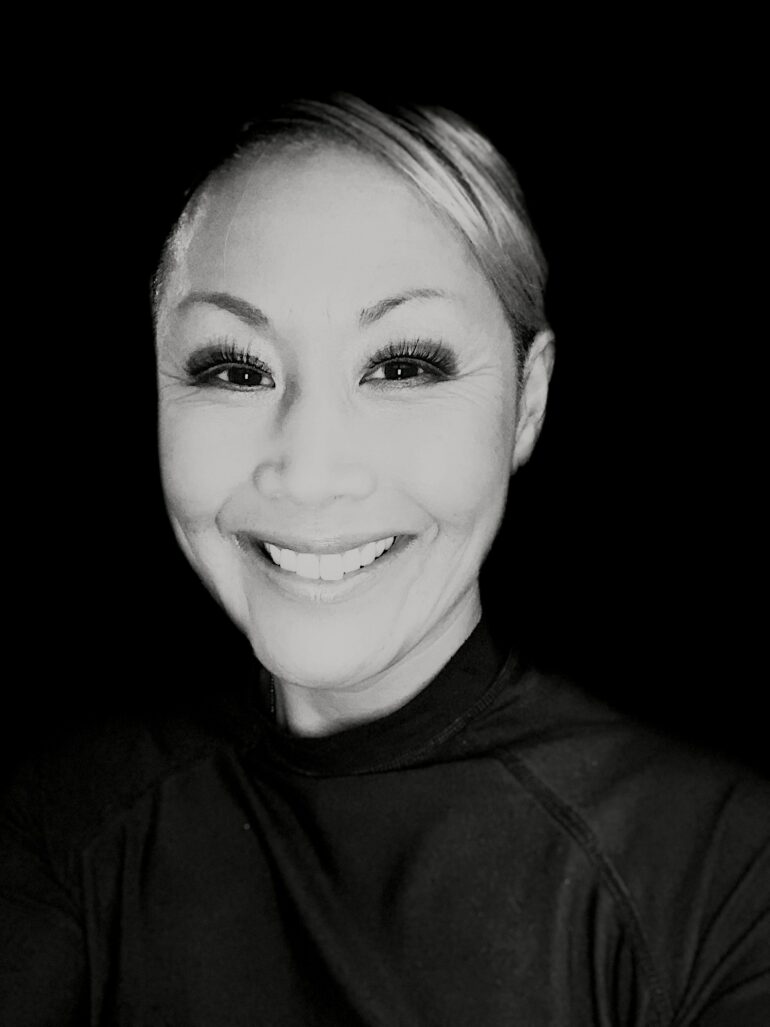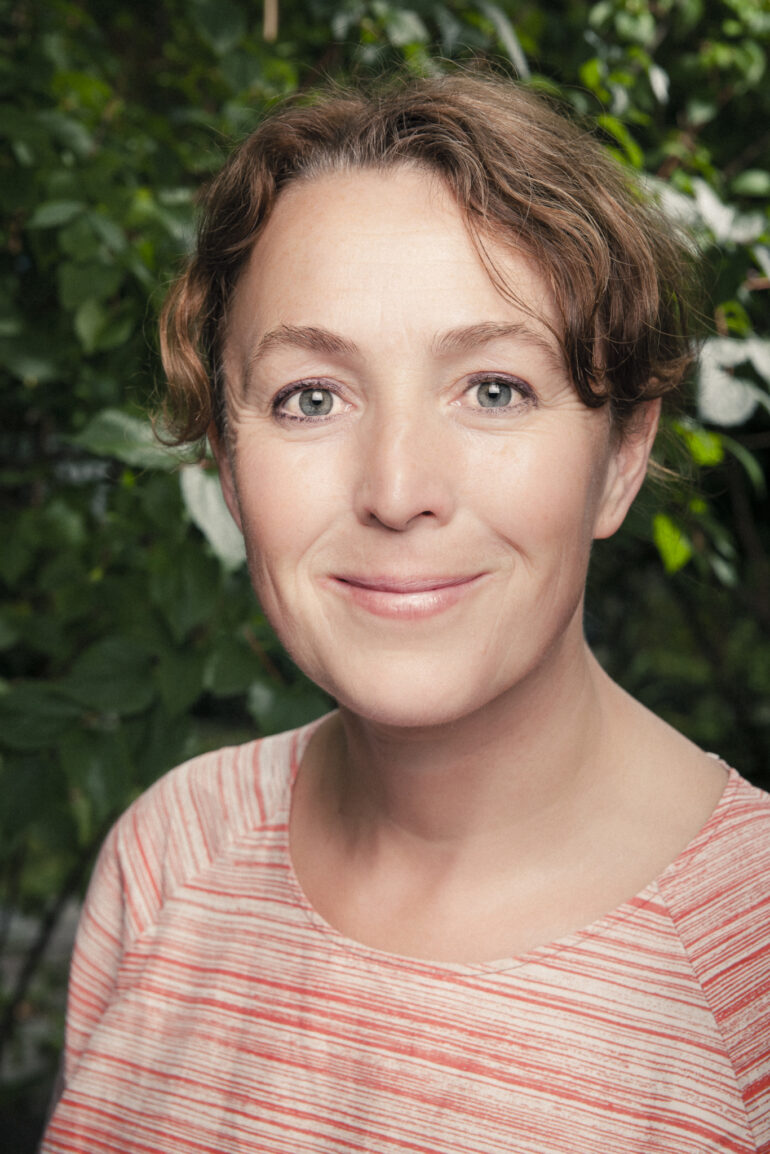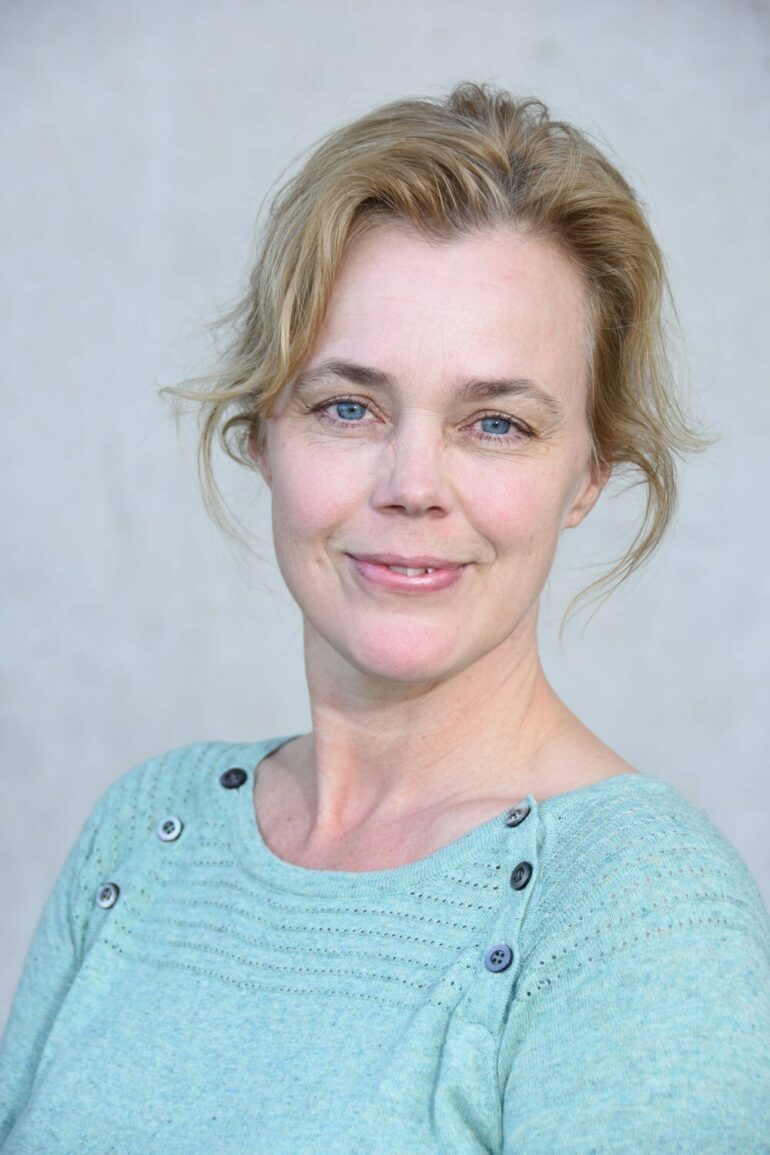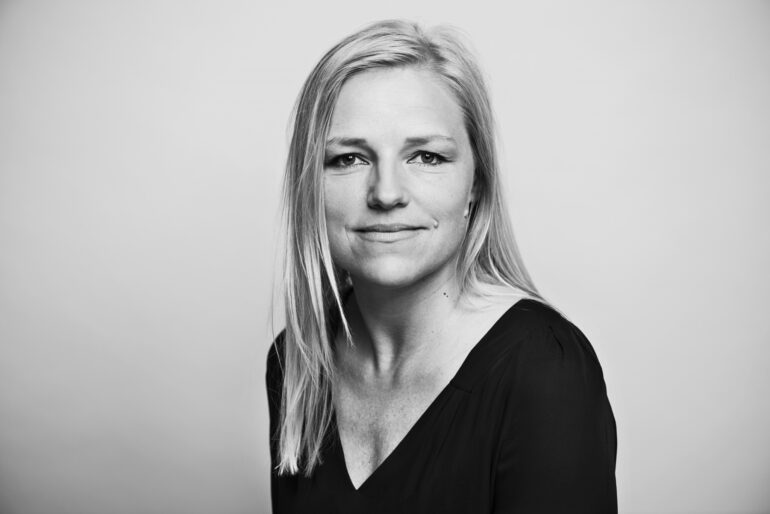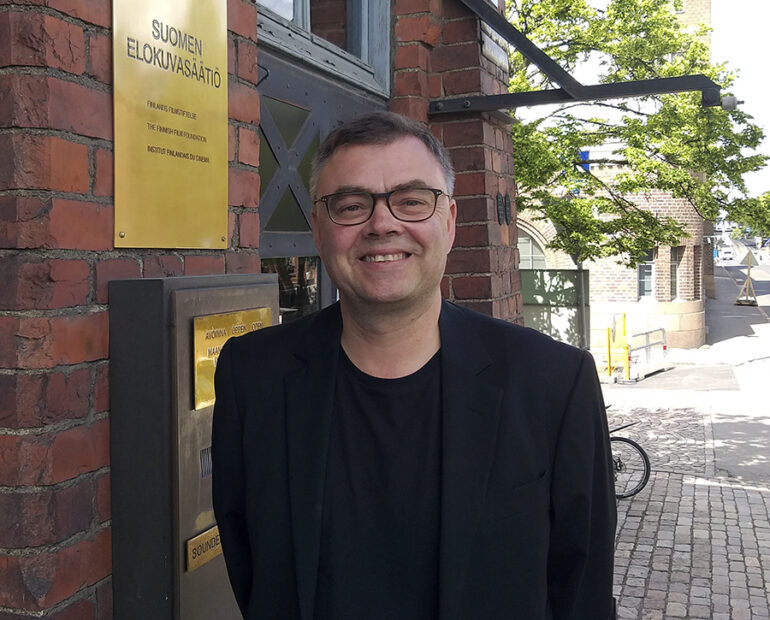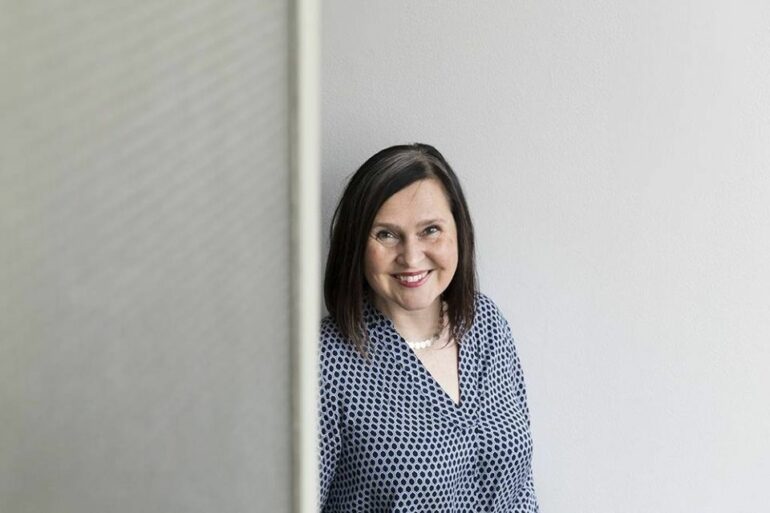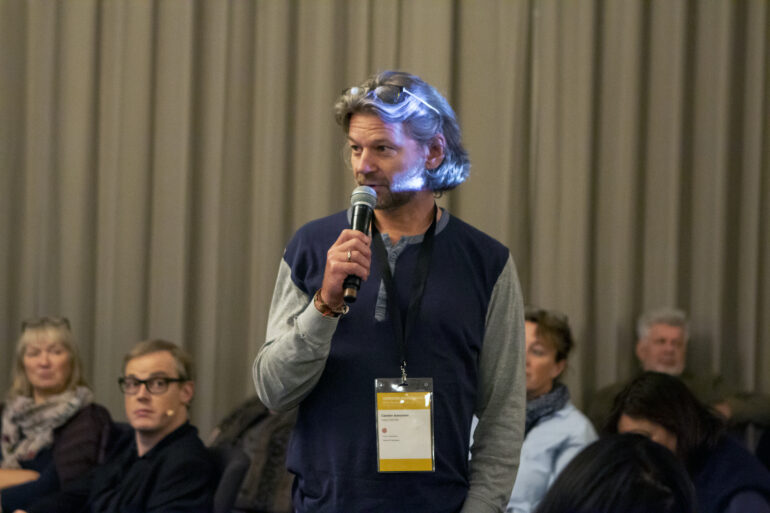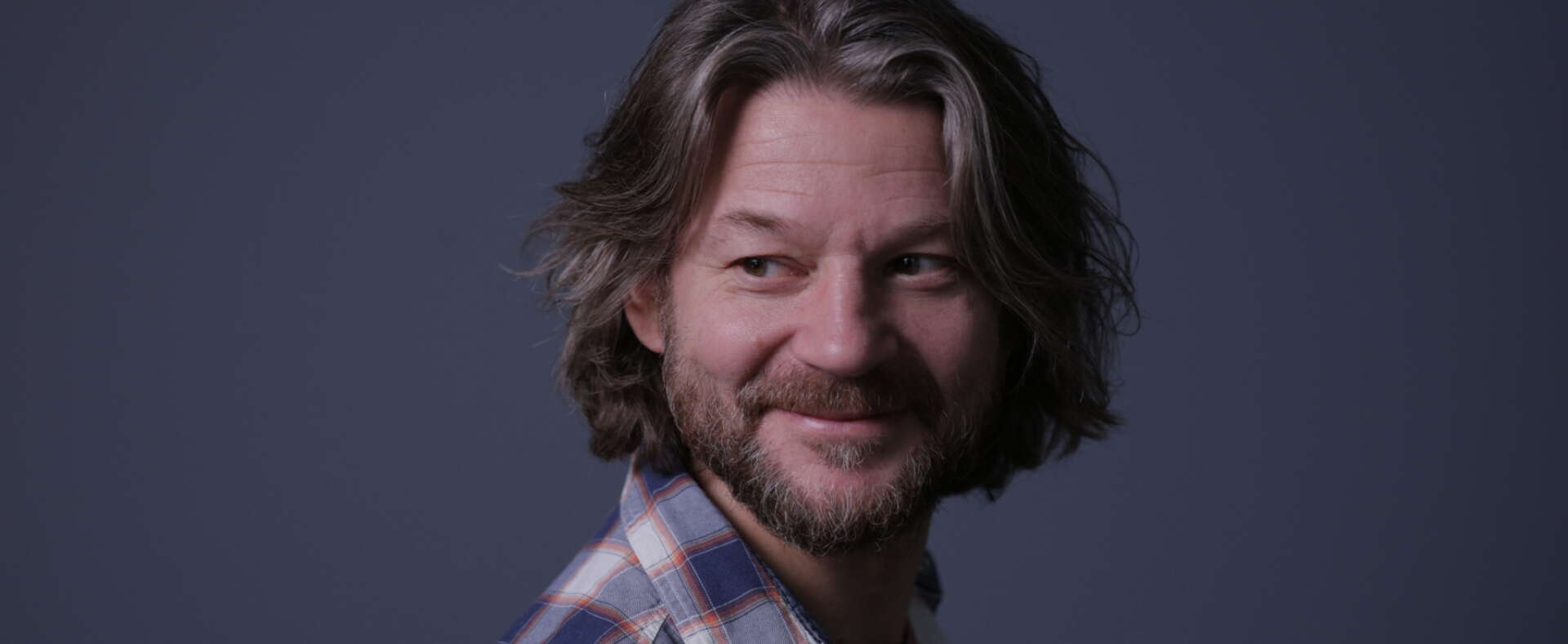
As part of Audiovisual Collaboration 2021 we asked some core questions to key funders.
At the end of the September 2019 Nordisk Panorama ‘Town Hall’ meeting in Malmö, Norwegian producer Carsten Aanonsen (Indie Film) made an impassioned plea for greater support for documentary co-production among the Nordic countries. “We have a very great symbiosis in the Scandinavian countries, and we need to take care of that. We cannot reduce the co-production money from the film institutes. Rather the opposite. This is very, very important,” he said.
An avowed fan of co-production, Aanonsen’s recent Nordic collaborations have included My Heart Belongs to Daddy, which he co-produced with Swedish outfit Momento Film, and the 2020 fest hit Young and Afraid, which was boarded by Danish production company Good Company Pictures.
In 2018 he travelled beyond Scandi borders to produce Munch in Hell, on which Pieter Van Huystee Film and Television took a co-pro credit, courtesy of a co-production agreement between the national film funds of Norway and The Netherlands.
To coincide with the Nordisk Film & TV Fond initiative Audiovisual Collaboration 2021, Aanonsen was asked to elaborate on his Town Hall statement and he proposed some core questions to key institutional funders within the Nordic region about funding levels, levels of reciprocity and the importance of co-pro as a financial mechanism, applied both locally and beyond the Nordic countries.
One of his particular concerns was reciprocity, that there is a discrepancy in how much each of the national funders invests within Nordic minor co-productions.
“There is not a balance,” he underlined. “It's not equal, it's not a straight reciprocity between the countries…Over a long term it becomes an issue.”
This point is picked up by Klara Nilsson Grunning of the Norwegian Film Institute (NFI), who sets aside 2 million NOK (approx €198,000) for minority co-production support, both Nordic and non-Nordic. This usually benefits 6-8 films.
“At NFI our experience is that the Norwegian spend, a lot of times, is higher than the opposite way,” she says. “Meaning NFI seems to give higher support to the co-productions coming to Norway than the other way around. It is challenging to look at reciprocity as a rule, but of course it’s a goal that the Norwegian producers should be able to work in co-production relations that will result in similar funding for Norwegian projects abroad. It’s important that there is a balance within the working relations of the producers and their international co-producers.”
“Co-production relations between Nordic countries is crucial for the industry. It is also a very natural way to co-produce as the systems of funding are quite similar…We believe it’s definitely a cornerstone of the financing landscape for international projects in the Nordics,” she adds.
NFI’s Eirin Gjørv adds that most of Norway’s regional funds support co-production, which in turn cranks up the level of Norwegian investment in Nordic doc output. This can be anything between 2-4 million NOK (€198,000 - €396,000), a not inconsiderable boost to the co-pro pot.
For Jenny Örnborn of the Swedish Film Institute the question of reciprocity isn’t quite so clear cut, as production output (and therefore levels of support) varies year on year. “For example, in 2020 we supported 9 minors with production support and another 4 minors with a letter of intent, to the amount of 5,785,000 SEK (€564,000). In 2019 however, we only supported 5 minors with production support, all in all 2,420,000 SEK (€236,000).”
Örnborn seeks to reassure Nordic producers of Swedish commitment to ongoing co-operation, especially as other sources for finances are diminishing, such as early broadcast commitment and ‘profoundly smaller’ MGs. “Nordic co-productions have always been one of the most important mechanisms for production support for the Nordic documentaries and maybe now more than ever,” she says, adding how, “after the project’s artistic qualities one of our main criteria in our minor applications is how the long term partnership between the two production companies is described. We strongly believe in collaborations that are for real. And real collaborations vouch for reciprocity in themselves.”
“If one were to look at a given year, it may sometimes be a real challenge to see something that resembles reciprocity when we might not receive a single application from a specific country. But as like most statistics, one has to look at a longer period of time in order to see the whole picture,” she explains. “It also might not be an exact reciprocity since the different Nordic countries have different budgets and opportunities.”
“We are not scrutinising the exact amount of supported Swedish projects from other Nordic film institutes,” Örnborn further emphasises. “We trust that our projects will stand a fair chance when strong and with a true local partnership, and that the other Nordic film institutes see the strength in the Nordic collaborations as much as we do.”
Ane Mandrup, Head of Documentaries at the Danish Film Institute has an annual budget of DKK 2.5 million (€336,000) for minority co-production support for short fiction and documentaries. “The majority of the projects applying for co-production support are Nordic and the same goes for the projects we choose to support,” she says. “We do not have specific allocations for specific countries or regions. We strive for and succeed in supporting 5-7 minor co-productions each year.”
Mandrup agreed with SFI Örnborn’s assertion that Nordic reciprocity must be viewed over a long period than a year in order to determine how and where support is being given.
“The Nordic co-production support is of immense importance for the Danish producers and their productions. There is no way this Nordic collaboration, creatively, financially and distribution-wise can be overrated,” she adds, before outlining the four main criteria for support, namely “artistic qualities; creative and financial collaboration between the Danish and international producer, including previous collaborations and future plans; the Danish share of the technical and creative collaboration; the distribution potential in Denmark.”
“We support the strongest projects based on these four criteria,” she underlines. “We are in dialogue with our Nordic film institute partners as to their co-production support. However, for us at the Danish Film Institute we do not strive for complete reciprocity.”
Sigurrós Hilmarsdóttir, Head of Production at the Icelandic Film Centre points out that monetary support is based on the quality and relevance of the project applications, but that there is no specific demarcation between majority and minority docs. “The number of docs that are co-produced have been low, but have been increasing in recent years,” she says. “We don't look into delivering complete reciprocity but our aim is to support filmmakers establish long term relationships with their co-producers.”
“Unfortunately, we don't have [such] established co-pro relationships in the doc world, but these relationships have been important in the fiction part of the industry,” she adds.
The view from Finland is somewhat different in that co-production support derives from public and private sources, i.e. the Finnish Film Foundation and AVEK, whose monies are sourced via copyright levies.
The Finnish Film Foundation’s Head of Production Matti Paunio points out that his is a “flexible system” whereby any minority co-pro allocation comes out of the overall documentary budget, and hence has no fixed amount applied, nor indeed any pre-defined number of projects earmarked for support. “Good projects have always a chance,” he stresses.
That said, FFF backs approximately 7-8 minority co-pro documentary projects per year (which amounts to, coincidentally, 7-8% of the documentary budget), most of which are majority Nordic, with support of around €30,000 per project. “Important factors in our consideration are the overall quality of the project and the input of the Finnish talent involved,” he says. “We do find Nordic co-pros important for our producers for international experience, hopefully longtime collaborations and reciprocity.”
Over at AVEK, there is no separate budget for minority co-productions, but the aim is to support 6 productions yearly. “No allocation is [made] for different countries, but the main source of productions seeking a minority co-pro from Finland is from the Nordics. Our average support per production is between €20-25k. Together with FFF’s funds, the usual Finnish participation is between €40-60k,” says AVEK director Ulla Simonen.
Simonen makes a similar claim to that of NFI’s Klara Nilsson Grunning, regarding a perceived imbalance in funding. “Funds that we see in those co-productions where Finns are the majority don’t seem to be higher from other Nordic countries than what we would see from Finland going out,” she says, adding how, “we in AVEK alone can’t usually match the full need from Finland, but together with FFF, that is very much doable.”
But Simonen’s attitude is very much a collaborative one, with geo-proximity being a main driver for co-pro investment. “Nordic co-productions are, from the international co-productions, the most important ones of course. The thinking, production culture, means of distribution, level of budget and methods of working fit well. While it could be argued that giving the same amount directly to domestic production would be more valuable, we see the co-productions as a way to expand the knowledge and network as well as the distribution of the films. When production is exposed to larger evaluation as they are when making a co-production, they almost always gain artistically from it. Funding is of course a part of that, giving the possibilities to a higher ambition to flourish.”
Producer Aanonsen is in agreement with all of this, noting how, “it pleases me that the institutes seem to regard Nordic co-production as one of the most important single incentives for Nordic docs to continue expanding in quality and market growth. I hope these are ambitions that will be reflected in more reciprocal action between the five countries in the coming years. The opportunities ahead for our great Nordic documentaries are almost endless, and we need this regional understanding and support, especially in the coming years.”
His appeal therefore is that monetary and cultural ties are not only maintained but strengthened in order that Nordic documentary can continue to sit at the top table in terms of quality, professionalism and international appeal.
